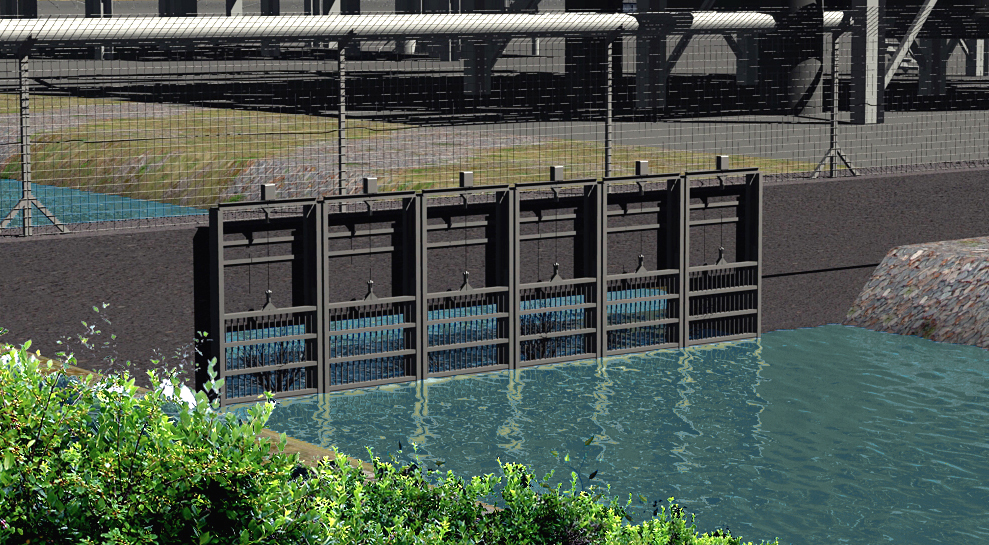Sustainable water management is increasingly vital as the world faces challenges such as climate change, growing populations, and the over-exploitation of water resources. With rising concerns over water scarcity and pollution, innovative technologies are playing a crucial role in addressing these issues. One such innovation making a significant impact is MagBar.

What is MagBar?
MagBar is a cutting-edge water treatment and filtration technology that leverages the power of magnetism to remove contaminants and improve water quality. It operates on the principle of using magnetic fields to attract and capture particles, including impurities, minerals, and even bacteria, thus enhancing the water purification process. By applying this technology, water management systems can provide cleaner, healthier water while minimizing the environmental footprint of traditional filtration methods.
Enhancing Water Quality and Safety
One of the most pressing issues in water management is the contamination of water sources with harmful substances such as heavy metals, microorganisms, and chemical pollutants. MagBar addresses this challenge by efficiently removing a broad range of contaminants without the need for harsh chemicals or excessive energy consumption. This process is especially important in areas where water sources are prone to pollution due to industrial activities, agricultural runoff, or improper waste disposal.
The technology behind MagBar uses magnetic nanoparticles or special filters that capture and remove harmful particles from water. These contaminants are then collected and removed from the system, leaving behind purified water that is safer for drinking and other uses. By reducing reliance on chemical-based treatment processes, MagBar contributes to the sustainability of water management systems, as it minimizes the production of toxic by-products and reduces the consumption of energy.
Contribution to Water Conservation
Sustainability in water management is not only about ensuring water is clean but also about using it efficiently. Traditional water treatment systems often require significant amounts of water to cleanse and filter large volumes. In contrast, MagBar's magnetic filtration technology allows for the recycling and reuse of water in a more efficient manner. This efficiency is crucial in industries such as agriculture and manufacturing, where water consumption can be high.
By improving the efficiency of water use and reducing wastage, MagBar can help conserve valuable water resources. In regions where water scarcity is a growing concern, this form of resource optimization can significantly reduce the strain on already limited supplies. Additionally, its low-energy consumption makes it an environmentally friendly alternative to conventional water treatment processes, aligning with the global push toward reducing carbon footprints.
Cost-Effectiveness and Scalability
The cost of implementing water treatment technologies can be a major barrier, especially for developing nations or small-scale industries. Traditional filtration methods often require expensive equipment, chemicals, and ongoing maintenance. However, MagBar's innovative approach offers a more cost-effective solution, especially in the long term. The simplicity of the technology, combined with its low operational and maintenance costs, makes it accessible for a wide range of applications, from residential use to large industrial operations.
MagBar's scalability is another key advantage. Whether in urban centers or rural areas, the technology can be adapted to meet the specific needs of various communities and industries. Its modular design allows for easy integration into existing water management systems, ensuring a smooth transition and immediate impact. This scalability makes MagBar a powerful tool in global efforts to improve water quality and promote sustainable practices in water management.
Environmental Benefits
Sustainability in water management is not solely about conserving water but also about minimizing environmental harm. Traditional water purification methods can result in the generation of toxic sludge, chemical waste, and other pollutants that require additional treatment and disposal. MagBar, on the other hand, produces minimal waste and uses fewer chemicals, which significantly reduces the environmental impact associated with water treatment.
The use of magnetic fields to purify water is a more eco-friendly approach compared to traditional chemical treatments. As industries and municipalities adopt MagBar technology, the demand for harmful chemicals like chlorine and ozone could decrease, leading to cleaner ecosystems and reduced risks to both human health and biodiversity. Furthermore, the potential for reducing carbon emissions by decreasing energy use in water treatment processes contributes to the broader goal of mitigating climate change.
The Future of Sustainable Water Management
As the world continues to grapple with water-related challenges, innovations like MagBar are essential in creating sustainable water management systems. The ability to purify water with minimal environmental impact and to conserve resources through efficient usage aligns with the goals set forth by the United Nations Sustainable Development Goals (SDGs), specifically Goal 6, which aims to ensure access to clean water and sanitation for all.
Moreover, as technology continues to evolve, MagBar and similar systems will likely become even more advanced, offering even greater efficiency, versatility, and effectiveness in water treatment. With the continued development of smart sensors and data analytics, future MagBar systems could be integrated with real-time monitoring capabilities, allowing water managers to make data-driven decisions and optimize water usage dynamically.
Conclusion
MagBar represents a significant advancement in the field of water management, offering a sustainable, cost-effective, and environmentally friendly solution for improving water quality and conserving resources. As we face the growing challenges of water scarcity, pollution, and climate change, technologies like MagBar play a crucial role in creating a future where clean, accessible water is available for all. The impact of such innovations is not limited to specific industries but extends to global efforts in achieving sustainable development and environmental protection. With continued research and adoption, MagBar has the potential to revolutionize the way we manage and conserve one of our planet's most vital resources.





